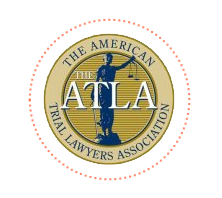US Supreme Court Weighs in on DWI Tests Without a Warrant
The United States Supreme Court recently made a decision to place new restrictions on police taking involuntary blood samples from suspected drunk drivers.
This ruling came from a Missouri case where a man challenged the warrantless blood draw that came after he refused the breath test, saying it constituted an unconstitutional search and seizure under the Fourth Amendment of the United States Constitution. The Supreme Court ruled 8-1 that officers cannot always take blood samples without a warrant. A problem arises because the justices disagreed on when a warrant might not be necessary. In the 48-page opinion, the justices stated that some circumstances exist where police can take blood without a warrant, but these exceptions were not defined.
Texas currently has exceptions in state law that allows police officers to retrieve a blood sample without a warrant. With this new ruling from the Supreme Court, Texas' current exceptions could be erased. Among these exceptions are when a person is: in a crash with a death or serious injury; when children are in the vehicle; when the suspect has two or more drunken driving convictions; or when the suspect has a single previous conviction for intoxication assault, intoxication manslaughter or drunken driving with a child passenger.
Before Texas law can be changed, officials and prosecutors must research the effect of the Supreme Court's decision. However, Austin Police Chief, Art Acevedo, has issued a statement saying, "Out of an overabundance of caution, I sent out a message to all of our officers that, effective immediately, we will not rely on (Texas law). We will seek search warrants on all cases until we can further evaluate the Supreme Court's decision and we come up with additional training on under what circumstances qualify for 'exigent circumstances." However, Austin and many other cities typically require warrants. The recent trend is for a police officer to skip a warrant in felony cases, but still seek a judge's approval for a blood test in misdemeanor cases.
Texas also has an exception that was put into affect nearly two years ago that practices a no-refusal initiative during high-profile events and weekends. During these periods, police seek a search warrant for suspected drunk drivers who refuse a breath or blood test. A judge is placed on call throughout the night to approve the requests received from police officers in those incidents. Acevedo states, "that the vast majority of Austin's blood draws for drunken drivers are during no-refusal initiatives."
Just like the uncertainty that rests in Texas law, it is unclear what will happen to pending drunken driving cases where a warrantless blood test has been administered without consent. These cases will have to be examined on a case-by-case basis to determine if the warrantless search was a violation of the person's Fourth Amendment right.















